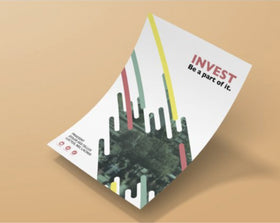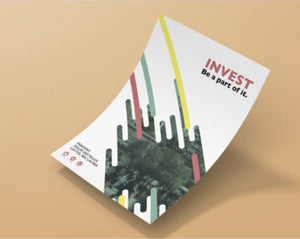Select Folded Leadlets & Flyers Style
LED Light Boxes
Artwork & Print Specification
Artwork Design Guidelines
Guidelines for Preparing Print-Ready Files
When preparing your design files for printing, it’s crucial to understand the concepts of Safe Area, Print Area, and Bleed Area. These zones ensure that your artwork fits properly and appears as expected once printed. By following these steps, you'll avoid issues like cut-off content or unintended white borders around your design.
Safe Area
The Safe Area is where all critical design elements—such as text, logos, and important graphics—should be positioned. This zone guarantees that these elements will remain visible after the trimming process. We recommend that you keep a 5mm buffer inside the Print Area to prevent any important content from being accidentally cut off. This ensures that everything important stays intact, no matter how the paper is trimmed.
Print Area
This is the final size of your product after trimming. The Print Area outlines where your design will be cut and defines the product's finished dimensions. Avoid placing crucial content too close to this area, as it may be cropped during the trimming process. Backgrounds and other visual elements should extend beyond the Print Area to fill out the final product completely.
Bleed Area
The Bleed Area is the outermost edge of your design, extending beyond the actual cut line. It ensures that background colors, images, or patterns fully cover the page without any unwanted white borders after trimming. To achieve a full-bleed effect, extend your artwork at least 3mm beyond the edges of your Print Area to ensure smooth, edge-to-edge coverage without any gaps.
Why Outlining Fonts Is Important
Converting your text to outlines is a key step for ensuring your fonts are displayed correctly across all devices and printers. When you outline your fonts, the text becomes part of the artwork, eliminating font compatibility issues and avoiding any licensing problems. This also helps ensure the design will be printed exactly as you see it on screen, with no surprises during the printing process.
Delivery & Approval
Lorem ipsum dolor sit amet, consectetur. Lorem ipsum dolor sit amet, consectetur adipiscing elit, sed do eiusmod tempor Ut
Lorem ipsum dolor sit amet, consectetur. Lorem ipsum dolor sit amet, consectetur adipiscing elit, sed do eiusmod tempor


